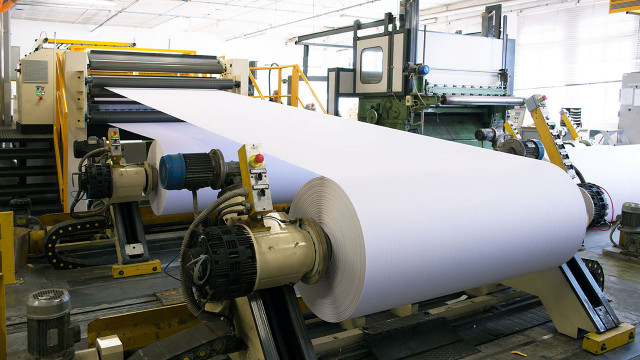The Lagos Chamber of Commerce and Industry (LCCI), in collaboration with NIXIN Paper Mill Nigeria Limited, is urging the Federal Government to implement policy support and incentives to enhance local paper manufacturing in Nigeria.
Gabriel Okonkwo, the Chairman of LCCI's Printing Publishing and Allied Group (PPA), emphasized the immediate necessity for government action in the paper manufacturing industry to revive domestic production and lessen Nigeria's reliance on imports.
During a meeting with stakeholders at NIXIN Paper Mill, Okonkwo pointed out that existing policy inconsistencies have hindered local manufacturers.
He criticized the current tariff structure, which imposes duties on plain paper imports while permitting printed materials to be imported duty-free.
He argued that this inequitable policy has resulted in a skewed competitive landscape that favors foreign manufacturers over local companies.
Okonkwo stated, "This situation has made it more affordable to print books and other materials abroad and import them rather than producing them locally. Consequently, numerous printing jobs are outsourced to other countries, depriving our local industry of opportunities. If local manufacturers can deliver high-quality paper at competitive prices, it would lessen our import dependency, conserve foreign currency, create employment, and significantly boost the economy."
He underscored that Nigeria's large population, particularly its student base, provides a vast market for paper products, urging support for local paper manufacturers to produce at scale and competitive prices.
To reinforce his call for greater confidence in local capabilities, Okonkwo referred to recent experiences with the electoral body, asserting, “INEC didn’t even believe we could produce ballot papers locally until recently. It’s time for us to trust and invest in our own.”
In line with its commitment to national self-sufficiency, NIXIN Paper Mill aims to boost production capacity, enhance product quality, and expand its product offerings to satisfy the rising demands of the Nigerian market, thereby decreasing the country's reliance on foreign paper products and contributing to local economic growth.
Managing Director of NIXIN, Eric Wang, compared the potential of Nigeria’s paper industry to his hometown in China, where a population of just 300,000 supports a paper factory that processes over 20,000 tons monthly.
In contrast, Nigeria, with a population exceeding 200 million, generates only 70,000 to 75,000 tonnes per month; a number he believes should be significantly higher given the educational and commercial requirements of the country. “Over 80 percent of Nigeria’s educational and printing materials are imported from Asia,” Wang noted.
He assured that local manufacturers, including their competitors, have the capacity to fulfill Nigeria’s paper demand independently, lamenting that the paper mill can produce up to 8,000 tons of paper monthly, depending on the GSM, yet local demand remains limited, stifling their market potential. He advocated for the imposition of punitive tariffs on imported paper to protect and promote the local industry.
Business Manager at NIXIN, Williams Sun, reiterated that Nigeria has greatly underutilized its local paper production capacity, with many orders still being fulfilled by countries like India and China.
He stressed NIXIN’s substantial investment of over $60 million and expressed dissatisfaction over the lack of returns, noting that one year into operations, the anticipated market response has not yet occurred.




















